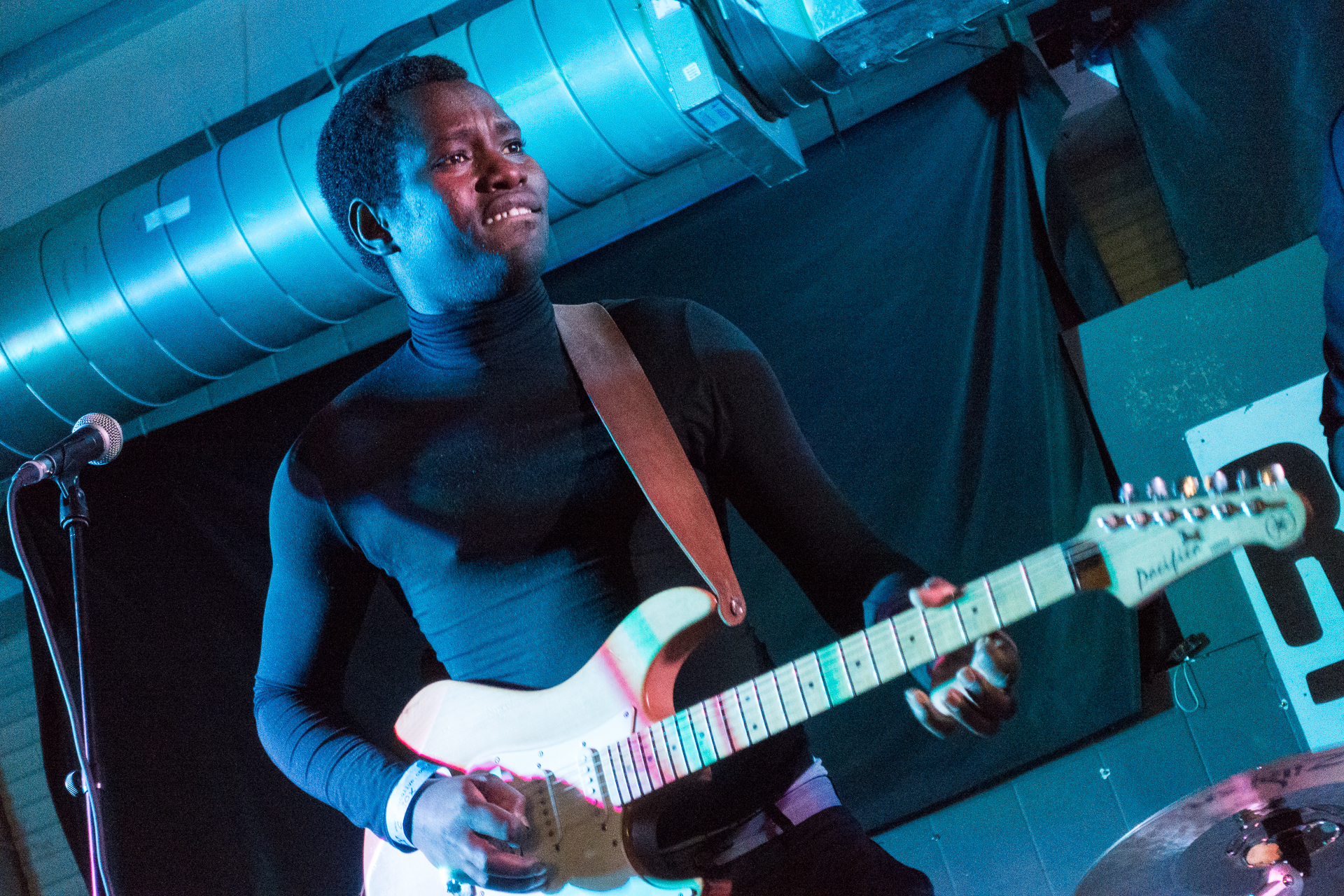
BY LESLIE MUIR
WHEN ALIOU TOURÉ took the stage on Monday night at the Doug Fir Lounge, he clutched his guitar close. With a sweeping look at the audience and a shy smile, he let out a wild yell into the microphone and the show took off into funky abandonment.
Through all of the desert blues beats that moved between reggae, funk and somewhat poppy guitar riffs, not once in the evening did the Songhoy Blues members discuss what blues they had to sing about. The lyrics, all in French and the vernacular Malian language Bambara, weren’t easy to pick up over the deep bass thumping away. If the group had been singing about their flight to the Malian capital Bamako in 2012 to escape jihadist rule in their hometown of Timbuktu, the audience wouldn’t have known it. The band members, also including Oumar Touré, Garba Touré and Nat Dembélé, only began playing music together once they were safely away from the laws that had strictly forbid dancing, singing and music.
“There needs to be more music in the world,” Touré called out in between two upbeat guitar riffs. This was one of the closest times he came to touching the issues that had removed the men from their home and brought them to the more international capital where they began playing professionally. The band did manage to plug the documentary they are featured in, “They Will Have to Kill Us First,” about artists performing illegal music in Timbuktu, but coming from the enthusiastic band, even this was a celebration of the movie instead of a recognition of their past hardship.
Songhoy Blues, named after the Songhai Empire, left the brutality of their home behind them by playing music, and it seemed clear that their performance was not defined by their past experiences but by the freedom and joy they now have as musicians. Part of this celebration-through-performance was dedicated to another previously forbidden activity, dance.
“I want one thing from tonight: your dance,” Touré beckoned, beginning to shake his body. Confined at first, his movement grew until, almost tripping over a mic stand, he called out for the audience to do the bigger moves for him. They obliged. He lead the crowd in Malian-inspired moves that looked fresh enough to fit in on any club floor. An audience of Portlanders were finally convinced to ditch their reserved head-bobbing for crazy-cool body swinging and arm waving. By the end of the set, I had joined about 20 other people in dancing on a raised bench and stamping my feet to demand an encore.
“Where we come from children learn music from the street, but that’s it,” Touré said during one of the rare slow-downs in energy, invoking a time before the anti-dancing regime was in place.
From the crowd someone yelled, “We don’t have dancing in the streets,” but the band members continued to futz with the equipment and not worry about comments that didn’t quite understand their message. Spreading their music with American audiences was, as they said, about spreading “peace, love and African music” and not comparing between the two worlds. In fact, never did they mention outright the regime back home and the violence that threatened them should they attempt to play. Either people came in knowing about the group’s past or they could experience the lively blues music at face value, which is a pretty incredible thing to do. Away from harsh laws, the Songhoy Blues gets down with the most energetic and happy tunes around.
Subscribe to the Mossy Log Newsletter
Stay up to date with the goings-on at Lewis & Clark! Get the top stories or your favorite section delivered to your inbox whenever we release a new issue.

Leave a Reply